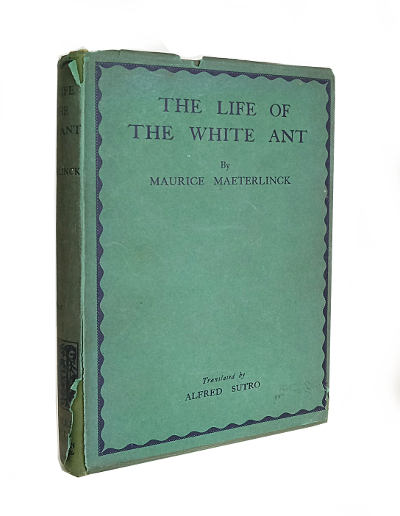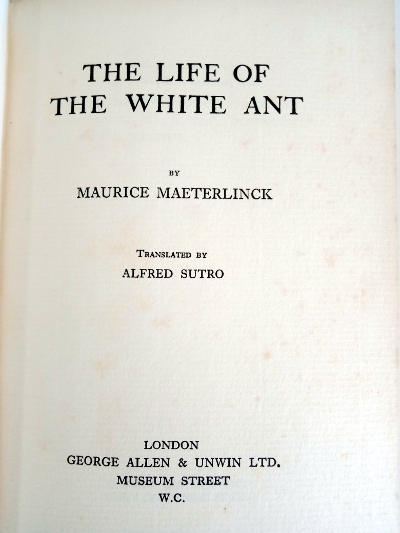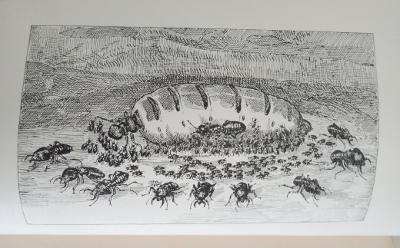The book that plunged Nobel Laureate Maeterlinck into notoriety, based on claims that he plagiarised the The Soul of the White Ant by Afrikaner poet and scientist Eugène Marais, which was published a few years ago in Afrikaans.
Nevertheless, Maeterlinck’s book is an engaging read, accessible to the English-speaking world. In it he describes the organisation and habits of termites, drawing parallels with the world of Man.
In Chapter 11, “Their Destiny,” he writes:
‘It is rather disconcerting to note that whenever nature proceeds to endow a seemingly intelligent individual with the social instinct, by organising and stimulating life in common – the starting-point between the family and the relation between mother and child – her object is apparently to subject that individual, as society develops, to a more and more rigorous regime, to an increasingly intolerant and intolerable discipline, duress and despotism. Thus we find her condemning her slaves to a leisureless, unrelieved existence in a factory, barracks or prison; pitilessly exploiting their energy till they become exhausted and die; compelling the sacrifice and misery of the many for the advantage or happiness of none – and all this in order that a kind of universal despair may be continued, renewed and multiplied so long as the world shall last. These cities of insects, that appeared before we did, might almost serve as a caricature of ourselves, as a travesty of the earthly paradise to which most civilised people are trending. One thing at least is certain – the scheme of nature does not include happiness.’
About the author (from Wikipedia):
Maurice Maeterlinck (29 August 1862 – 6 May 1949) was a Belgian playwright, poet, and essayist who was Flemish but wrote in French. He was awarded the Nobel Prize in Literature in 1911 “in appreciation of his many-sided literary activities, and especially of his dramatic works, which are distinguished by a wealth of imagination and by a poetic fancy, which reveals, sometimes in the guise of a fairy tale, a deep inspiration, while in a mysterious way they appeal to the readers’ own feelings and stimulate their imaginations”. The main themes in his work are death and the meaning of life. He was a leading member of La Jeune Belgique group and his plays form an important part of the Symbolist movement.




